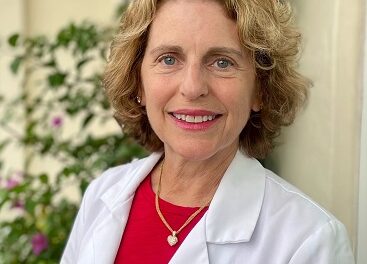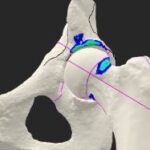 The University of Miami Pediatric Mobile Clinic, a collaboration between UHealth – University of Miami Health System and the Children’s Health Fund, has brought comprehensive medical care to children for more than 23 years. The mobile clinic mainly serves immigrant children and families, mostly of Hispanic and Caribbean descent. These children often follow national trends that indicate childhood obesity is increasing most prominently in low-income, minority communities.
The University of Miami Pediatric Mobile Clinic, a collaboration between UHealth – University of Miami Health System and the Children’s Health Fund, has brought comprehensive medical care to children for more than 23 years. The mobile clinic mainly serves immigrant children and families, mostly of Hispanic and Caribbean descent. These children often follow national trends that indicate childhood obesity is increasing most prominently in low-income, minority communities.In recent years, a growing number of the mobile clinic’s patients have become overweight and obese. More children and adolescents as a result are suffering clinical conditions that often accompany weight issues, including hypertension, pre-diabetes, type 2 diabetes and high lipid levels. Under the direction of Lisa Gwynn, D.O., assistant professor of clinical pediatrics at the University of Miami Miller School of Medicine, the mobile clinic’s team has devised a unique obesity-intervention program that uses telehealth to grant low-income children access to multidisciplinary services.
Through frequent contact with professional providers via text messaging and video conferencing on mobile devices and universal access to health education apps and electronic fitness bracelets, the program is delivering an ongoing counter-message to society’s obesity-driving impulses. By infusing this technology into clinical care, the mobile clinic also provides an essential feedback loop. Medical professionals receive weekly updates on their patients’ progress on nutrition and exercise through information that is collected into a secure, HIPAA-compliant database.
“With the integration of telehealth services into our mobile clinic, we hope to provide children and families, who typically have no access to even the most basic health care services, with an entry point to primary care physicians and specialists,” Gwynn said. “If this technology enables marginalized, low-income families to receive a group of coordinated, multidisciplinary services that would otherwise be unavailable, we will deem this program a success.”
Gwynn added that the program is eager to track whether the use of telemedicine improves their patients’ understanding of behaviors for healthy weight maintenance. Her team also aims to show that this coordinated set of technology-enabled services, including app-driven health education and behavior reporting, can lead to better health biomarkers, a goal that has proven notoriously difficult to reach, particularly among low-income populations.
“Telemedicine is changing not only the way we are practicing medicine, but also how we are studying its application,” Gwynn said. “It’s an exciting time for health care.”


























